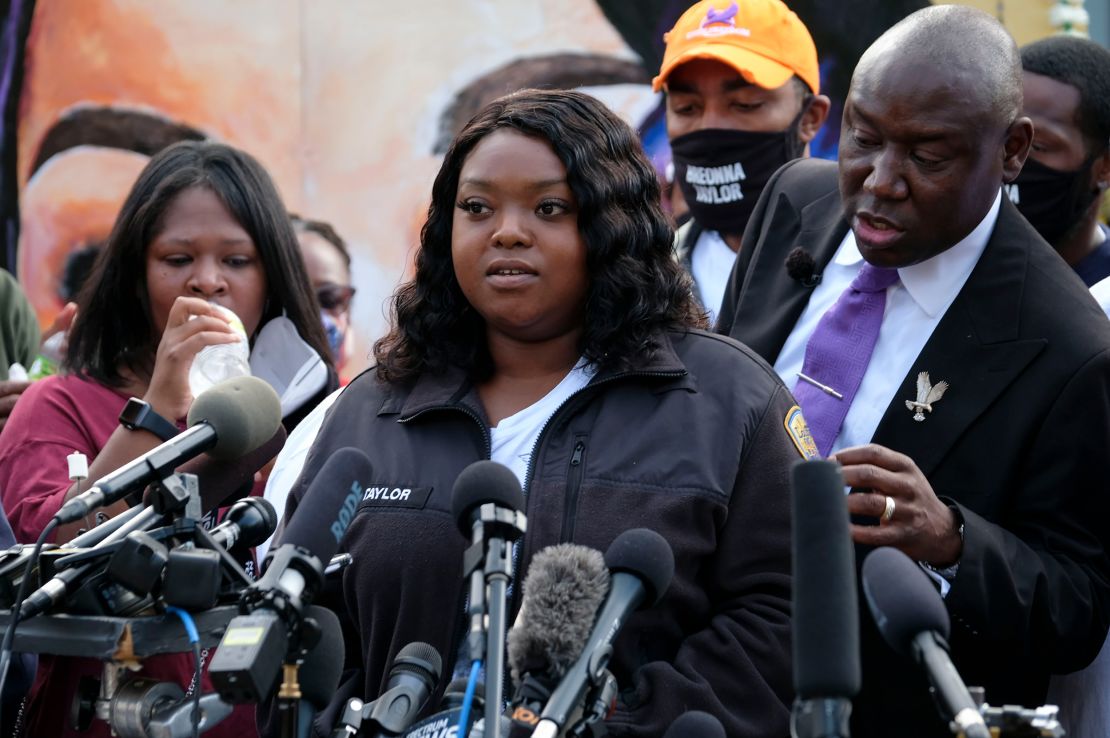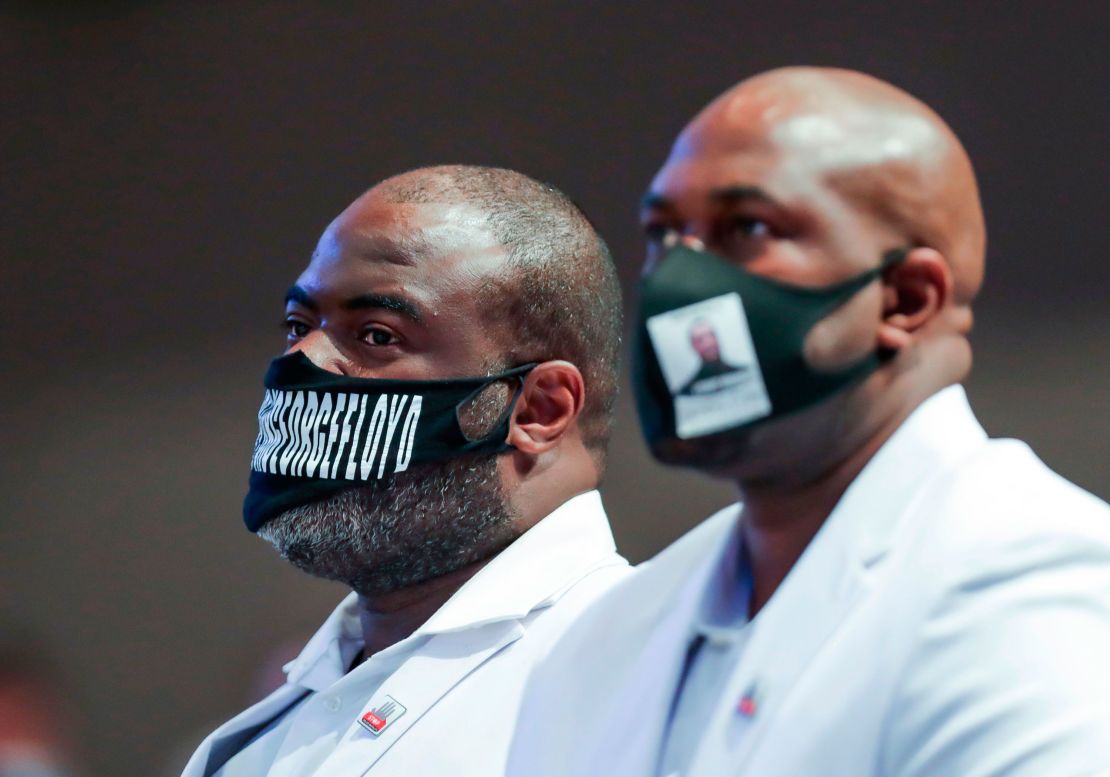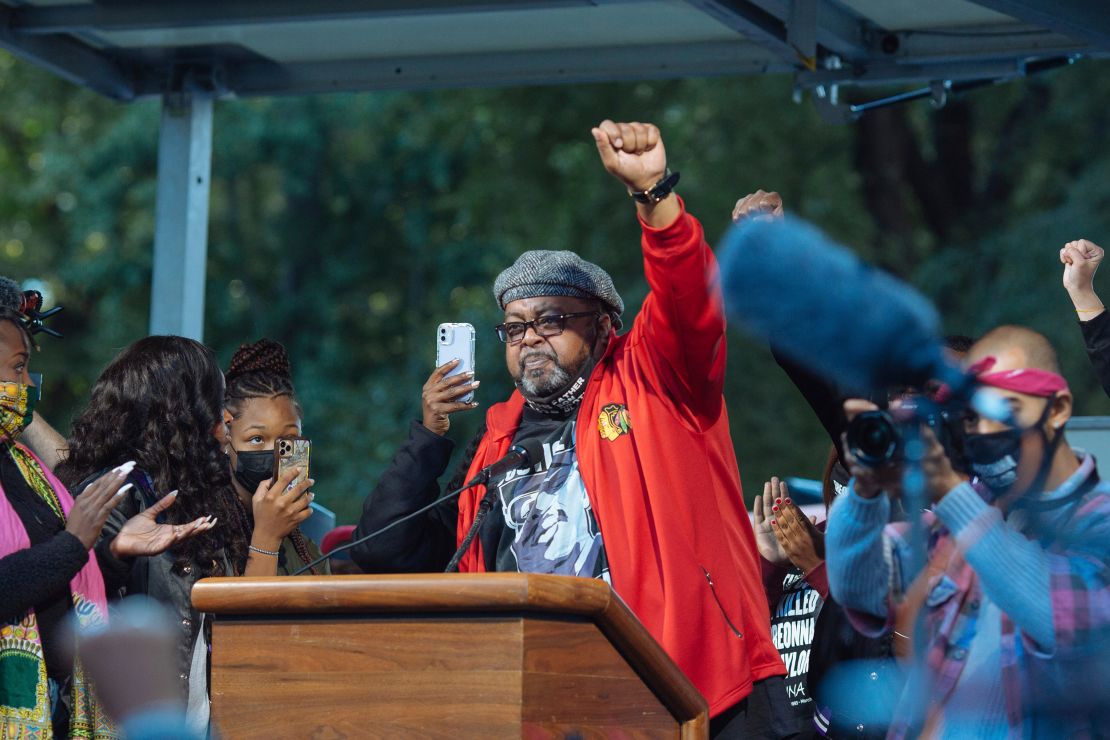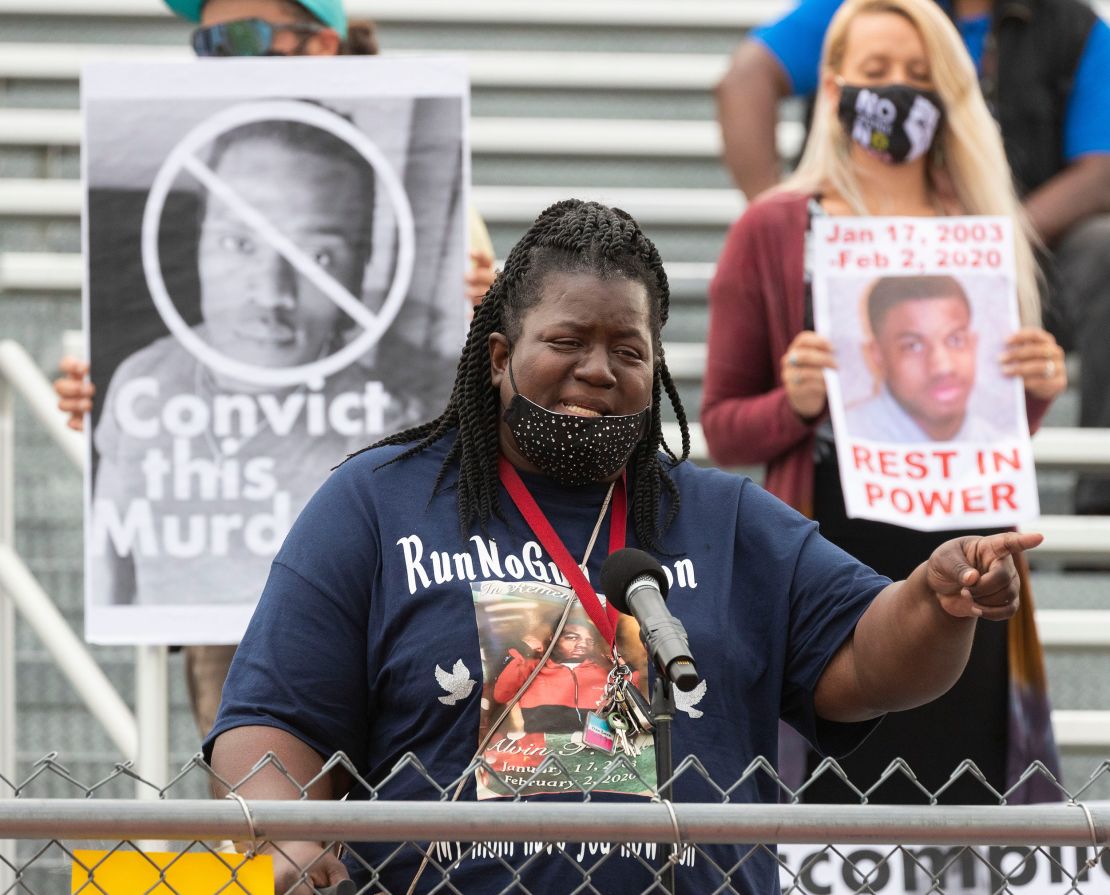If Breonna Taylor were alive today, she would have been at the polls.
The 26-year-old, who was shot and killed in March by Louisville police officers after they broke open her apartment door, never missed an opportunity to vote, her aunt Bianca Austin told CNN.
Whether the candidates on the ballot were running for president or local office, Breonna made sure to exercise her constitutional right, Austin said.
So when Austin encounters people who aren’t enthusiastic about either presidential candidate in the upcoming election, she reminds them about her niece.
“Please, if you don’t have a candidate in mind, just vote because Breonna can’t vote,” she said.
Just days before Election Day, the families of Taylor, George Floyd, Jacob Blake, and Alvin Cole are joining forces at a rally in Chicago on Thursday in an effort to encourage people to vote. Their message is clear: Lasting change won’t come just by marching in the streets – people must also cast their ballots.
For Black Americans, the stakes in this election are especially high, say the families whose lives have been forever altered by police violence.
The election comes on the heels of a pandemic that has killed more than 227,000 Americans, disproportionately affecting Black people at every turn. It follows a global uprising over the shootings of Black people at the hands of police that prompted a reckoning with systemic racism not seen in previous years. And it could determine whether or not there are any meaningful national reforms to address those inequalities.
“We need to get somebody in office that’s going to work on our behalf,” Austin said.
The future is on the ballot
Taylor’s killing already has resulted in some policing reforms in her hometown of Louisville, Kentucky.
As part of a $12 million settlement with her family, the city agreed to implement establish housing incentives for officers to live in the areas they serve, have social workers provide support on certain police runs and require commanders to review and approve search warrants before seeking judicial approval, among other changes. It also passed a law banning no-knock warrants, along with several other cities.
But given a grand jury’s decision not to indict any officers in connection with her death, the family isn’t standing down any time soon.
“Until she gets justice, I’m going to continue to be a voice for her,” Austin said.

This month, the family launched the Breonna Taylor Foundation to keep her legacy alive and give back to the community. One of the foundation’s first initiatives has been picking up voters from neighborhoods around Louisville and offering them free rides to polling sites.
“Our future is at stake at this point,” Austin said. “People need to realize in order for us to move forward, we need to get out here and vote.”
Black voters are already fired up and turning out to vote in much higher rates than they did four years ago. It’s a dynamic that Austin said she’s seen in Louisville too – most of the people she’s encountered have already voted early or mailed in their absentee ballots.
“A lot of people are just sick and tired,” she added.
Even though enthusiasm is already high, Taylor’s family no plans of slowing down their voter mobilization efforts as Election Day approaches.
Tamika Palmer, Taylor’s mother, is representing the family at Thursday’s rally in Chicago. Meanwhile, Austin will be out in Louisville with other members of the Breonna Taylor Foundation, escorting people to polling sites and making sure they’re filling out their ballots correctly.
Two brothers find that people are listening
Philonise and Rodney Floyd have also been at the forefront of advocating for change.
Since their older brother died in May in Minneapolis with a police officer’s knee pressed into his neck, Philonise Floyd has pleaded with lawmakers on Capitol Hill to pass key policing reforms. Both have lent their voices in racial justice rallies across the nation.
Lately, the younger Floyd brothers have been showing up to different polling sites in Houston – Floyd’s hometown – passing out potato chips and water bottles to voters and cheering up kids who are waiting in lines with their parents.
When people recognize them as the brothers of George Floyd – whose killing has been a catalyst for the change seen in police departments across the nation – they’re anxious to talk about what’s on their minds, Philonise Floyd said.

It’s been heartening to see how the tragedy that befell their brother is driving so many people to the polls, Philonise Floyd added. But sometimes the two brothers encounter residents in their communities that don’t believe their votes will make a difference.
Their message to those people: Vote like your life depends on it, because it does.
Philonise and Rodney Floyd said they’ve taken to framing what’s at stake in this election in terms that make sense to some of the skeptics they encounter: healthcare, income taxes and government assistance. And because of the platform they now have, they find that they’re able to get through to people.
“Ever since this stuff has happened to my brother, everywhere I go people just stop and they just listen,” Philonise Floyd said.
A father is carrying on a family legacy
Jacob Blake, 29, has left the hospital since getting shot several times in August by police in Kenosha, Wisconsin.
Though the younger Blake is now dealing with constant pain, he’s doing “as well as to be expected by a young man who’s been shot in the back seven times,” Blake’s father Jacob Blake Sr. said.

Despite everything he and his family have endured over the last few months, Blake Sr. is invigorated.
“If we speak with one big voice that is unified, people have to listen,” he said.
Because to change laws and challenge the conditions created by centuries of systemic racism, he added, they need votes.
Now Blake Sr. finds himself in a position of influence and leadership on issues of racial justice – a role that’s not entirely unfamiliar.
The Rev. Jacob Blake Sr., his father and the junior Blake’s grandfather, led the fight for fair housing in Evanston throughout the 1960s and ’70s, organizing marches after the assassination of the Rev. Martin Luther King Jr. that eventually led city council members to ban racial discrimination in housing.
So while the circumstances are painful, Blake Sr. feels equipped to meet this moment.
“It sits on like a fur-lined slipper,” he said of his new role. “I’m comfortable, and I know what I have to do.”
His father instilled in him a fearless attitude and a determination to fight for his people, Blake Sr. said. And in the coming days, he’s using his platform to turn out the vote.
“I can challenge the system,” Blake Sr. said. “The system has been broken for over 400 years. It’s never included us wholeheartedly. So that makes it easy for me to keep going.”
A mother wants change for the next generation
The changes that are being fought for in the streets and at the ballot box will ultimately have come too late for the families of police violence victims.
That includes the family of Alvin Cole, a 17-year-old who was shot and killed in February by police in Wauwatosa, Wisconsin.
But what has transpired since has made his mother Tracy Cole even more determined to make sure that those changes are realized – starting with voting for the candidate she thinks will listen to the concerns of African Americans.

Earlier this month, a prosecutor announced that an officer involved in Cole’s death would not face criminal charges. In the protests that followed, Tracy Cole and her daughters were arrested – and Tracy Cole’s lawyer alleges that the incident left her injured.
“We do not see justice,” she said. “It’s a constant thing in our community when it comes to police killing our kids or our loved ones. Something needs to be changed. Police should be accountable for what they do to us. It’s just like there’s nothing happening.”
By voting to make a change in the country’s leadership, Cole said she’s standing up not only for grieving mothers like herself, but all the families who could encounter a similar fate to hers.
When she casts her ballot, Cole said she’ll be thinking about her son Alvin, whose right to vote was lost when his life was cut short. But in the end, the fight today is about making a difference for future generations.





















